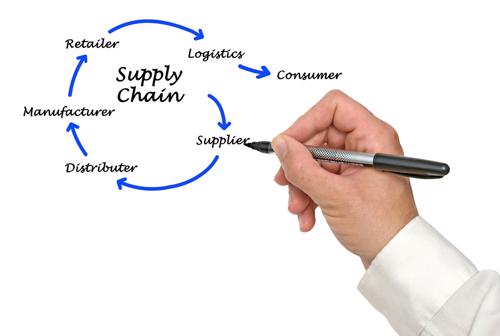
How automation keeps the supply chain safe
By Max BurkhalterOctober 29, 2021
We live in a digital world. Businesses, in particular, are realizing this.
Industries far and wide are self-reflecting on their practices, asking questions and turning to smart technology for the answers. The supply chain, especially, is pioneering automated solutions to help streamline performance and protect their industry.
More than ever, the supply chain is optimizing. Here's how businesses are taking advantage of smart, innovative solutions from beginning to end.
Manufacturers
Automation is largely a net positive for safety, according to ISHN. IoT and other automated technologies are helping manufacturers keep their workers away from danger.
New technologies shield employees from hazardous tasks, extreme temperatures and toxic chemicals on the job. Rather than being performed by a human, these tasks are streamlined and taken care of without risk of danger to any human.
Many technologies, like automated machinery, not only expedite the process, but perform otherwise physically strenuous tasks. IoT strips down the danger and removes the risk of human error, while also performing outside the limits of regular human capability.
Across the board, smart devices are keeping workers from burning out on the job. The supply chain relies on its human labor to thrive. But during peak volume, the mental and physical stress can tip some workers over the edge. Tired, stressed and burned-out employees are more likely to cause dangerous accidents. Thanks to automation, employees can ease up on their workload and stay fresh on the job.

Distribution
Key to the supply chain, of course, is the distribution. At the heart of this process are the truck drivers. Keeping drivers safe is of paramount importance, which is why companies are increasingly turning to the IoT for assistance.
IoT-enabled trucks, say TechRepublic, are helping distributors learn about their trucks and how to keep them safe. Smart devices collect real-time information from their vehicles, like speed and fuel consumption, and relay that back to management. AI technology also enables collision warnings and other insights that may give drivers extra time to react.
The drivers are safer, but what about the goods. IoT is protecting the product, too. The medical industry especially relies on technology, according to SupplyChainBrain. When sensitive materials, like vaccines, are distributed they need to be kept within certain temperatures. IoT adds a layer of thermal protection by relaying insights on the condition of their goods in real-time.
Warehousing
Fulfillment centers are at the forefront of cutting-edge technology. Automation thrives in warehouses in much the same way as it does for manufacturers. Technology reduces the number of physically hazardous tasks performed by workers and puts them in the hands of smart devices.
Robotics, according to Nearby Engineers, are quite literally picking up the slack. Forklifts are a particularly dangerous warehouse tool and climbing ladders could result in injury. Robots, like pickers and lifts, automate these tasks so that humans don't have to perform them.
Data Security
In our digital world, supply chains are often the target of cyberattacks. Per IBM, the average cost of a data breach is $4.2 million per incident. It's no surprise then that businesses are taking steps to stay protected — and automation is making it happen.
Through artificial intelligence, cybersecurity systems are self-learning how to better protect themselves from attack. Automated processes collect large swaths of data, analyze it and optimize future performance. The average security professional spends over three hours on data collection daily, per ReliaQuest. Freeing up this time allows analysts to cover more ground that may have gone unprotected.
Supply chains are reaping the benefits of automation both digital and physical. As the world embraces smart technology, supply chains remain a driving force. To learn about the ways Perle might be able to help, read our customer success stories.



